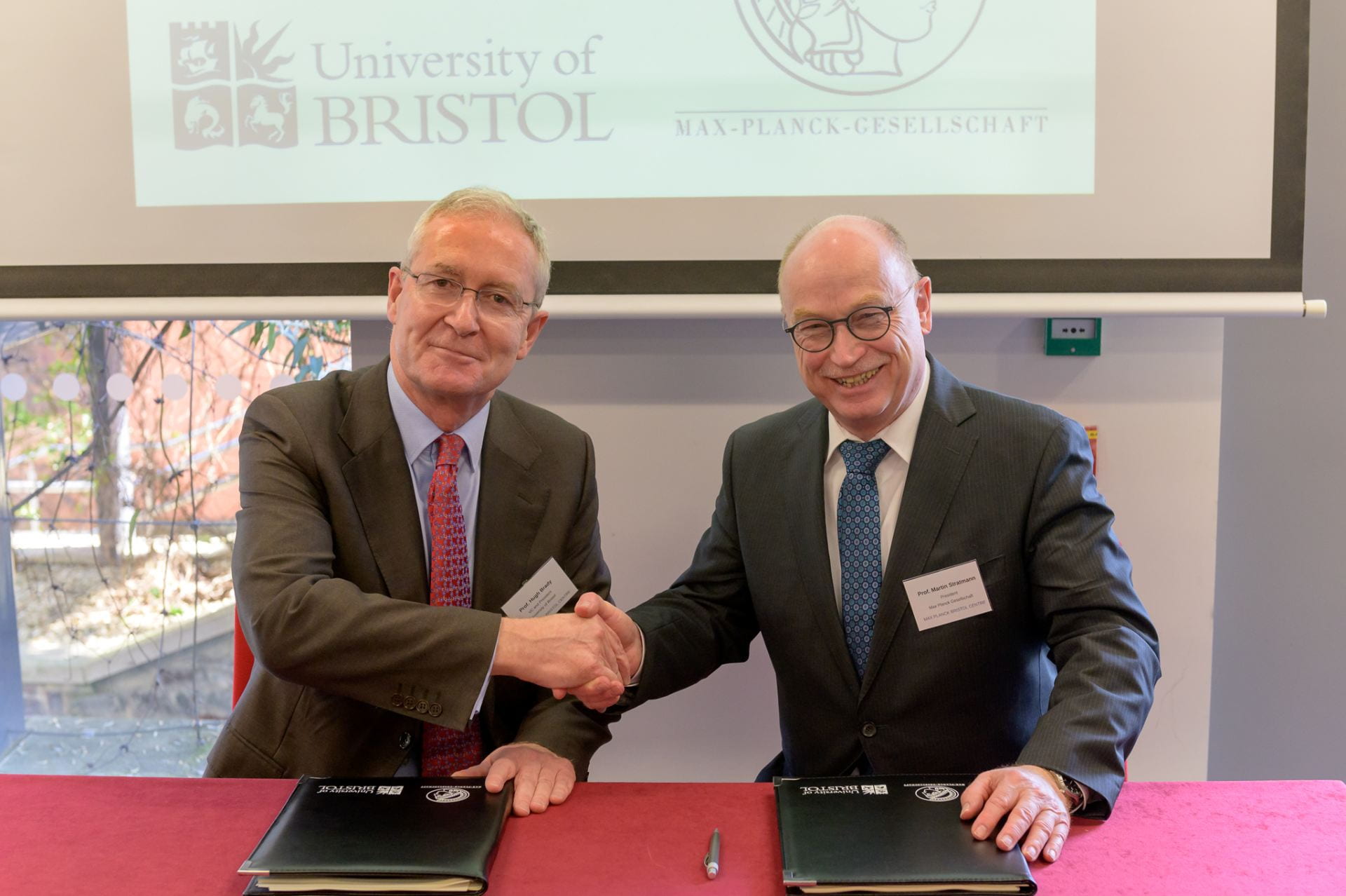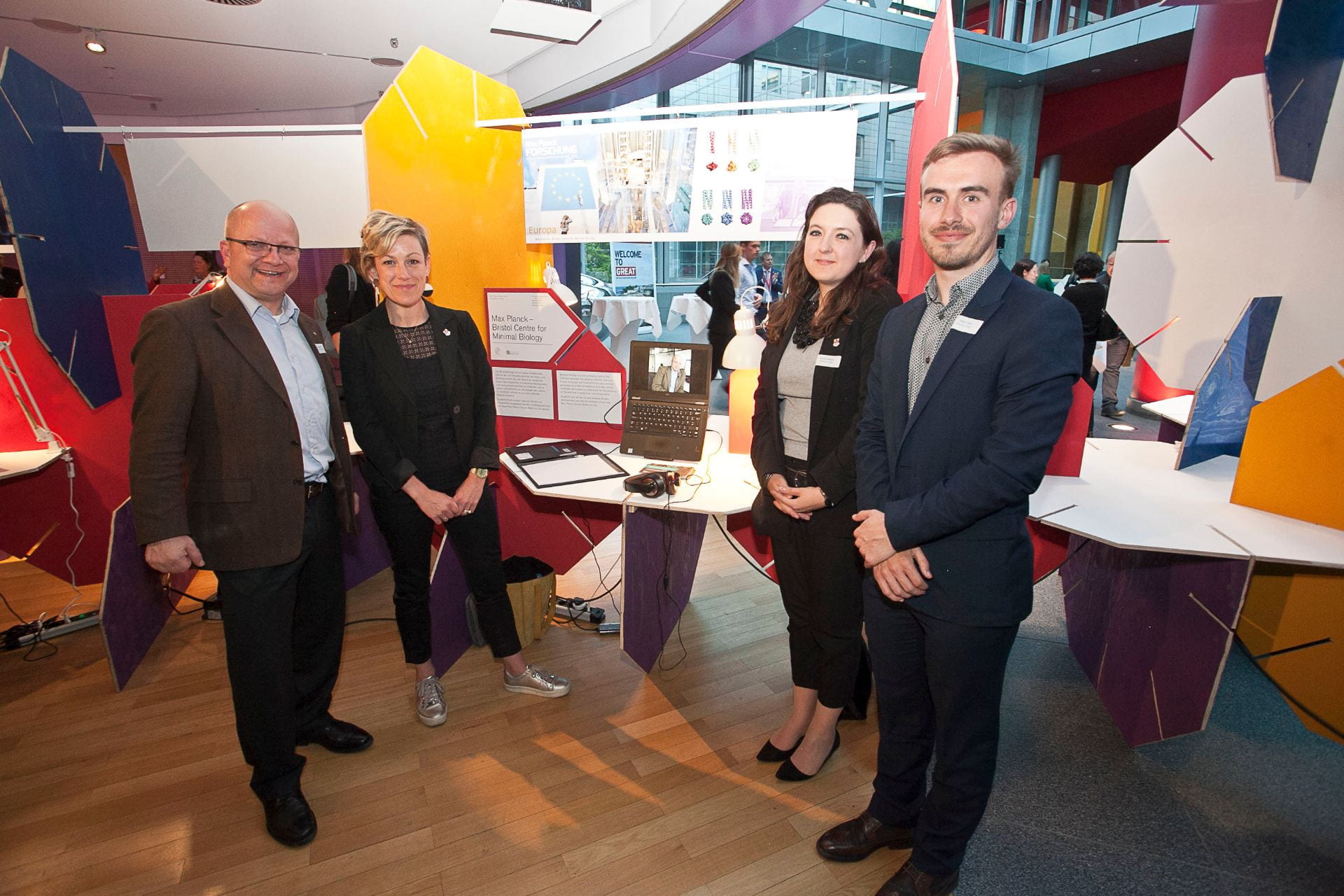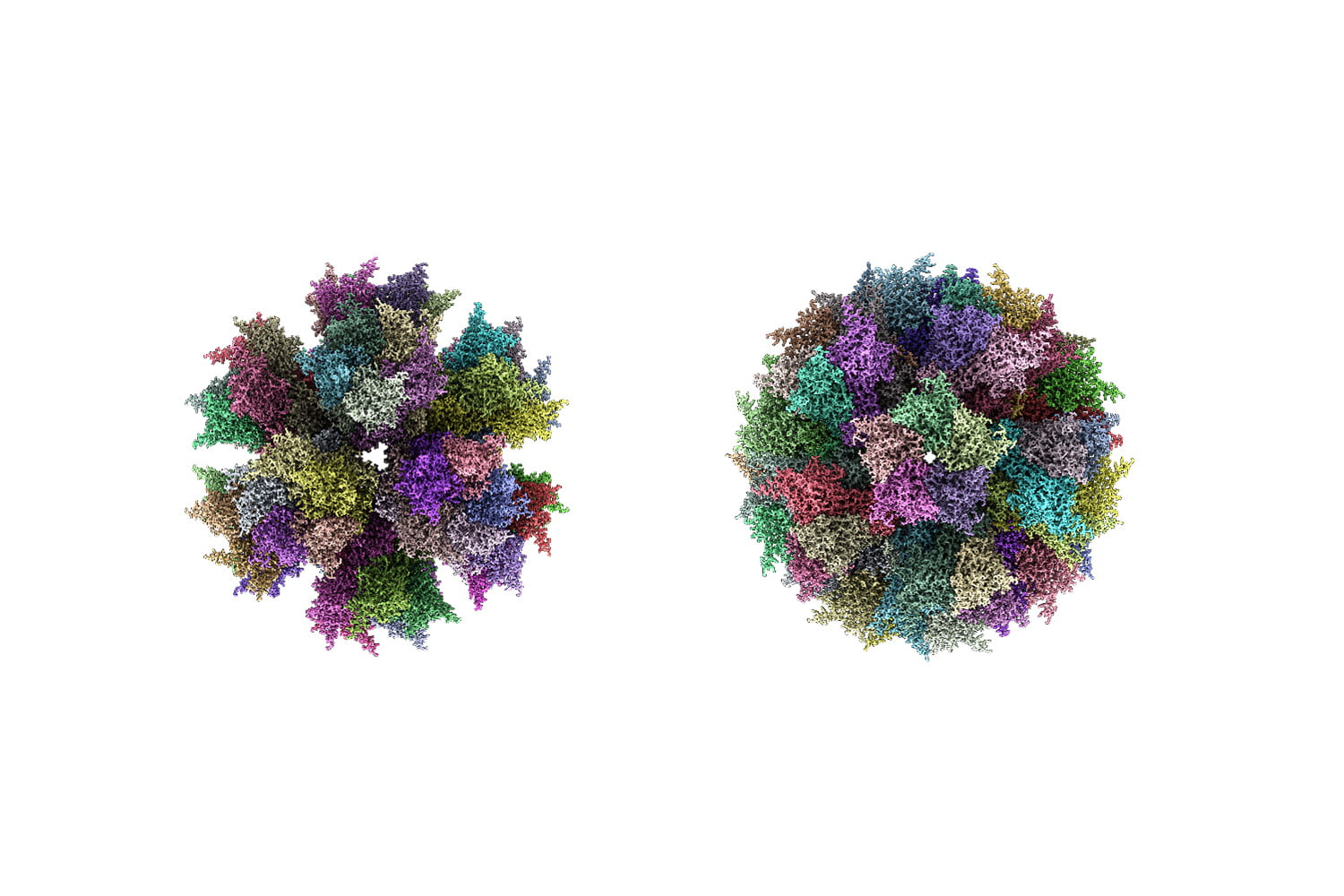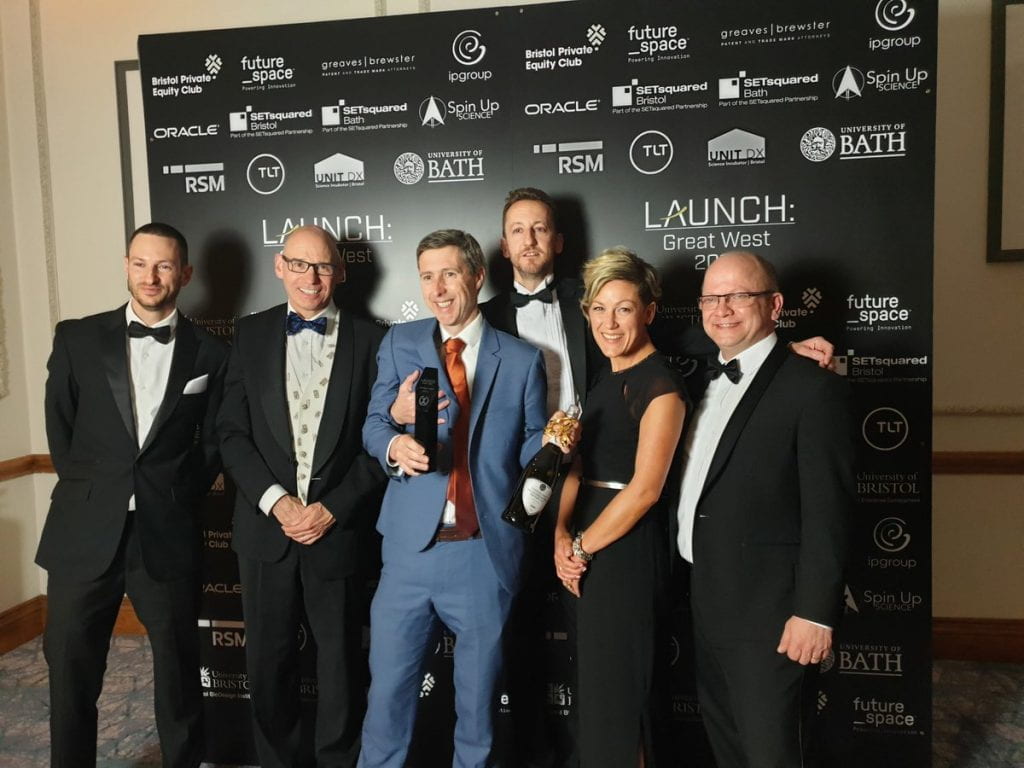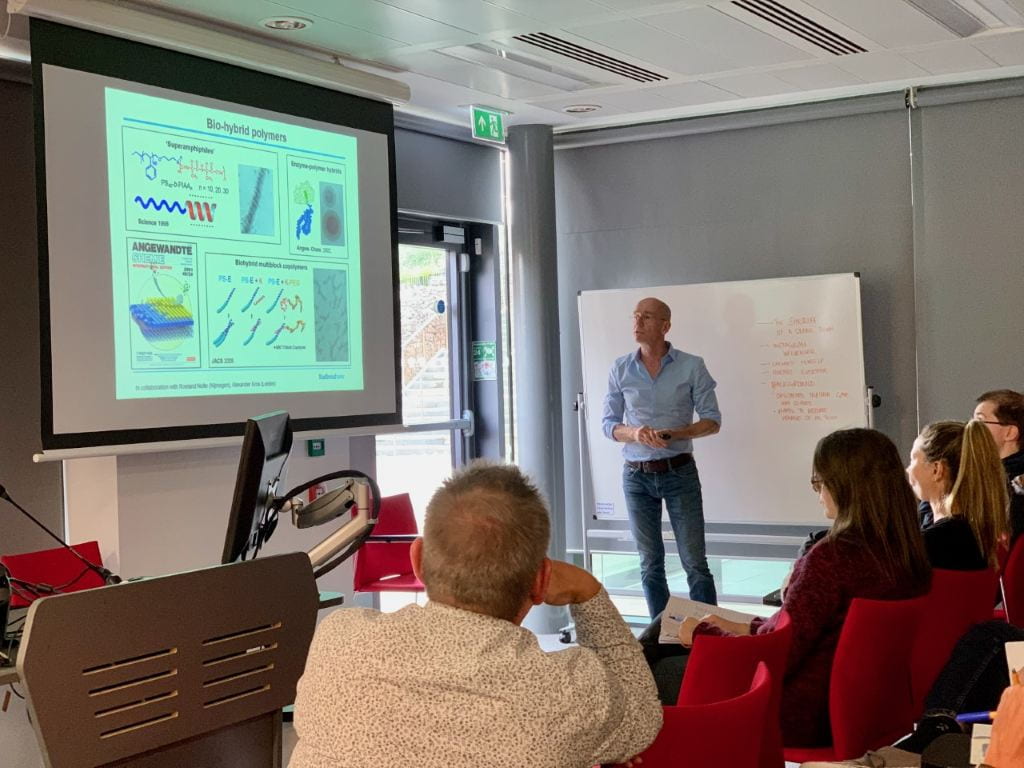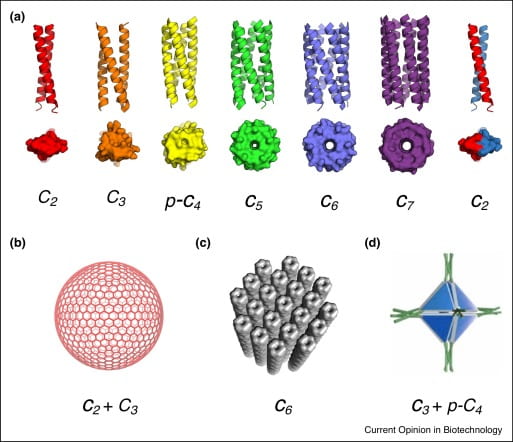What. A. Year.
2019 has been a great year for the Bristol BioDesign Institute. We have seen and actively partaken in some truly amazing advancements in synthetic biology, formed some new and exciting international partnerships, hosted an array of remarkable speakers and produced some groundbreaking academic papers. From synthetic biology’s obscurity at the turn of the millennium to the bio-industrial revolution we are now facing, we have no doubt that our work in 2020 will continue to transform the global ecosystem as we currently conceive it. But before we enter the New Year – and the new decade – here are some of our best bits of 2019…
Internationalisation
In the last 12 months alone, we have curated relationships with several international institutions to pool our synbio expertise. The Max Planck Bristol Centre for Minimal Biology launched back in March. The UK continues to collaborate closely with Germany in particular, with the University of Bristol co-authoring 3.1% of all scientific publications produced from 2013 to 2017 between the two countries. In May, our Bristol Max Planck Centre was 1 of 10 European institutions selected to showcase their work at the British Embassy in Berlin. Most recently, one of our BBI Directors, Imre Berger, went to a meeting with Vabiotech representatives in Hanoi, Vietnam to share state-of-the-art vaccines technologies that could help prevent future global outbreaks of avian flu and rabies.
Spin-Out Success Stories
Our award-winning BrisSynBio and Bristol BioDesign Institute spin-outs have continued to excel in their respective fields following Launch Great West Awards in June. ‘The Ones to Watch’ winners Rosa Biotech have secured significant angel investments to commercialise biosensing technology. The technology mimics mammals’ sense of smell, which could be developed to detect malaria, Parkinson’s and other chronic diseases in their early stages. Another spin-out, Cytoseek; ‘the Rising Star’ award winners, have raised £1.1 million for ground-breaking cell therapies to treat solid cancer tumours. Cytoseek use cell membrane augmentation technology to ‘supercharge’ patient’s cells against tumours, which are responsible for 85% of cancer-related deaths. Winners of ‘the Global Good’ award, Imophoron, have developed a novel vaccine platform from a synthetically engineered protein scaffold, named the Addomer®, for use on emerging infectious diseases. Most excitingly, this synthetic protein has been found to bypass the cold chain problem. Many vaccines currently require refrigeration, which makes storing and transporting them to inaccessible places a difficult and expensive challenge. The ADDomer® vaccine candidate is thermostable, which would make it an ideal vaccine vessel for delivery to Asia and sub-saharan Africa. 
Synthetic Biology Seminar Series
The BBI have hosted some incredible speakers here at the University for our Synthetic Biology Seminar Series 2019, including Bert Poolman, Nico Sommerdijk, Mark Howarth and Jason Chin. All the seminars saw a massive turnout from the BBI community, with topics ranging from mineralisation of collagen fibril, to building synthetic ribosomes from scratch to reprogramming the genetic code. Our line-up of external speakers for Spring 2020 will be announced in the New Year, so keep an eye out on our website and social media (Twitter and LinkedIn) for these…
Academic Papers
Our own excellent scientists and BBI Directors have produced some fascinating academic papers this year, including but not limited to;
- “A tunable dual-input system for on-demand dynamic gene expression regulation” by Lucia Marucci et al.
- “Pathways to cellular supremacy in biocomputing” by Thomas Gorochowski et al.
- “The de novo design of α-helical peptides for supramolecular self-assembly” by Dek Woolfson et al.
- “Synthetic self-assembling ADDomer platform for highly efficient vaccination by genetically encoded multiepitope display” by Imre Berger et al.
- “Ex vivo culture of adult CD34+ stem cells using functional highly porous polymer scaffolds to establish biomimicry of the bone marrow niche” by Ash Toye et al.
- “Photoswitchable Phase Separation and Oligonucleotide Trafficking in DNA Coacervate Microdroplets” by Stephen Mann et al.
For more of our BBI publications visit our website.
Coming up…
Bristol Biodesign 2020, a one-day international symposium in synthetic biology and biodesign, is taking place next year on the 6th May 2020. The line-up of speakers for the programme include Doctors and Professors from the Weizmann Institute of Science, University College London, the John Innes Centre, the University of Zurich and the University of Bristol. For more details about the event, please head to our website. Hope to see you there!
Abstract Submission Deadline: 6 March 2020
Registration Deadline: 24 April 2020
See you in the new year!


